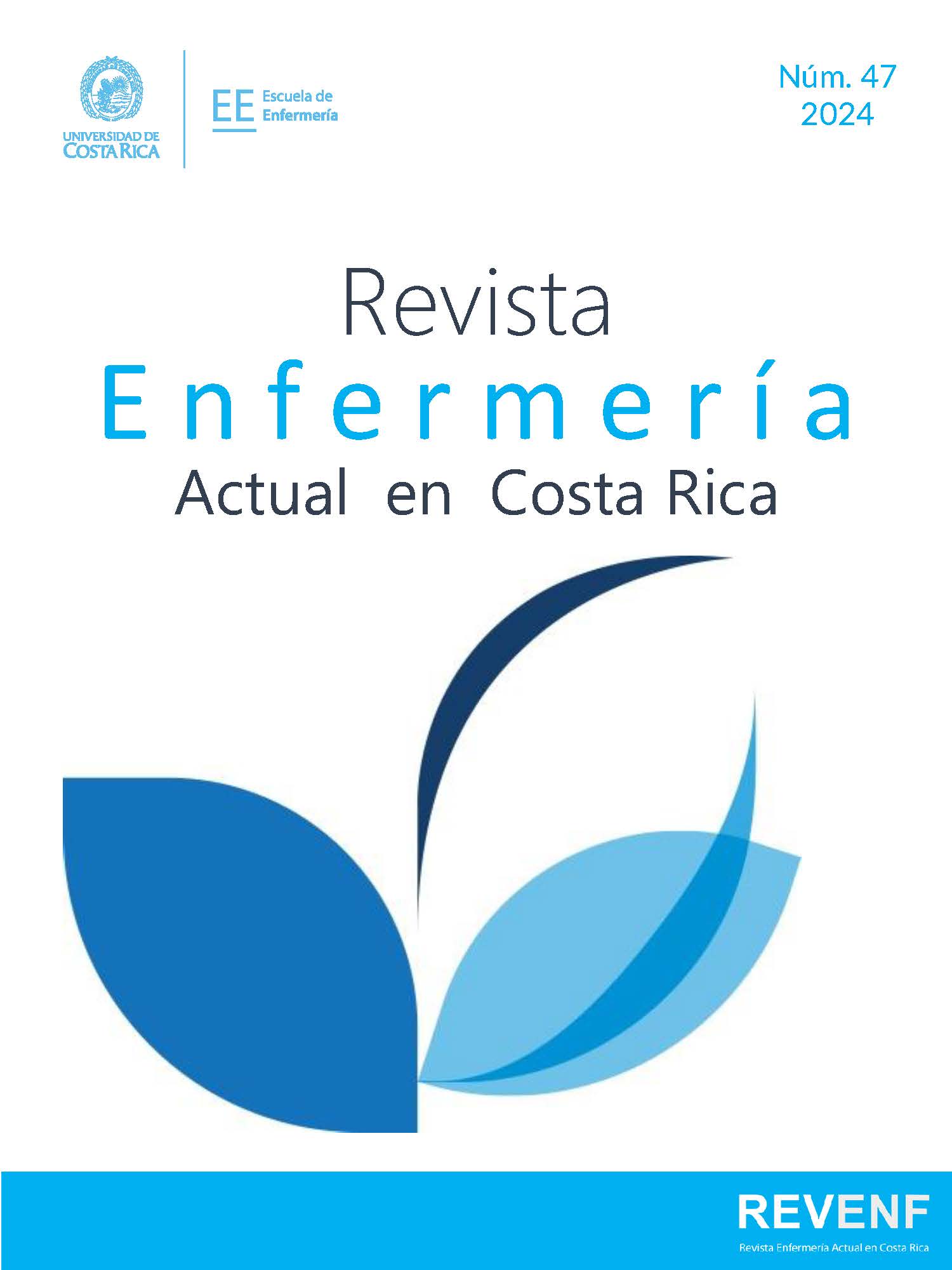Abstract
Introduction: In the last decade, the increase in HIV/AIDS cases among adolescents and young people highlights the challenges faced by public health management. The taboo imposed by society on the subject hinders their access to health services and professionals, in addition to hindering communication between parents and children about HIV/ AIDS.
Objective: To understand how parents and children approach HIV/AIDS during adolescence and youth.
Methodology: Descriptive and exploratory study, with a qualitative approach, with family members linked to the primary care network of a small municipality in southern Brazil. Data collection was conducted between November and December 2021, with audio-recorded interviews and subsequent transcription using the NVivo Release version 1.1.6® software. The content analysis followed the Bardin method, comprising the stages of pre-analysis, material exploration, and data categorization.
Results: The participants were eleven family members, mothers of adolescents, aged between 30 and 50 years. The following discussion categories emerged from the interviews: "Current knowledge about HIV/aids", "The approach to HIV/aids within the family", and "Who is responsible for the sexual education of our children?".
Conclusion: Families face difficulties in the approach and dialogue due to the lack of reliable information and the presence of deep-rooted beliefs and fears. It is essential to promote openness and encourage dialogue, highlighting the importance and need for health services in guiding the population.
References
Fundo Internacional de Emergência das Nações Unidas para a Infância- UNICEF. Apesar dos progressos, adolescentes meninas continuam suportando o peso da epidemia do HIV, com 98 mil novas infecções em 2022. [Internet]. Geneva: WHO; 2023. Available from: https://www.unicef.org/brazil/comunicados-de-imprensa/apesar-dos-progressos-adolescentes-meninas-continuam-suportando-o-peso-da-epidemia-de-hiv#:~:text=Globalmente%2C%20ocorreram%20270%20mil%20novas,HIV%20para%202%2C6%20milh%C3%B5es
Vieira GN, Moraes Ferreira L, Sousa RJ de A, Costa AG de S, Filgueiras LA, Almeida YS. O HIV/AIDS entre os jovens no Brasil: revisão integrativa da literatura. Health and Biosciences. 2021;2(1):16–30. doi: 10.47456/hb.v2i1.32460
Dantas JCR, Belfort MGS, da Silva MSV, Silva CXR, de Azevedo SA, Mantesso JB de O, de Sousa KA, da Silva SA. Equipe multidisciplinar no controle de Infecção Sexualmente Transmissíveis (IST) em adolescentes: revisão integrativa. CLCS. 2023;16(9):15752-69. doi: 10.55905/revconv.16n.9-118.
Hill SV, Sohail M, Bhagat D, Ball A, Smith TV, Coyne-Beasley T, et al. “Sex. Maybe We Should Do Things to be Healthy About It.” Adolescent-Caregiver Discussions About Sex. J Adolesc Health. 2023;72(5). doi: 10.1016/j.jadohealth.2022.12.021
Fonseca LK da S, Santos JVDO, Araújo LF de. Análise da estigmatização no contexto do HIV/AIDS: Concepções de Pessoas que Vivem com HIV/AIDS. Gerais: Revista Interinstitucional de Psicologia. 2020;13(2):1–15. doi: 10.36298/gerais202013e14757
Lima LC, Pavinati G, Marcon SS, Baldissera VDA, Magnabosco GT. Educação sexual com adolescentes no contexto familiar à luz da (anti)dialogicidade freireana. Interface. 2023, 27:e220651. doi: 10.1590/interface.220651
Costa AR, Magroski C, Gomes GC, Ribeiro JP, Mota MS, Sandra A. Mudanças no viver a partir do diagnóstico da criança/adolescente com HIV/AIDS e facilidades encontradas no cuidado. Research, Society and Development. 2020;28(7). doi: 10.33448/rsd-v9i7.3707
Tong A, Sainsbury P, Craig J. Consolidated criteria for reporting qualitative research (COREQ): a 32-item checklist for interviews and focus groups. International Journal for Quality in Health Care. 2007;19(6):349–57. doi: 10.1093/intqhc/mzm042.
Instituto Brasileiro de Geografia e Estatística. Borrazópolis (PR). Cidades e Estados. [Internet]. Brasília: IBGE; 2022. Available from: https://www.ibge.gov.br/cidades-e-estados/pr/borrazopolis.html.
World Health Organization (WHO). Adolescent Heath [Internet]. 2023. Available from: https://www.who.int/health-topics/adolescent-health/#tab=tab_1
Minayo MC de S. O desafio do conhecimento: pesquisa qualitativa em saúde. 13ª ed. São Paulo: Hucitec; 2013.
Bardin L. Análise de conteúdo. São Paulo: Edições 70; 2016.
Lima P da C, Parreira CM de SF, Escalda J, Sacco R da CC e S, Cabral A de S, Venturelli Y, Mendonça AVM, Escalda PMF. Enfrentamento de epidemias de ISTs em população jovem: caracterização da linguagem dos materiais educativos. Cien Saude Col. 2024;29(0):e13762022. doi: 10.36298/gerais202013e14757
Suto CSS, Coelho E de AC, Paiva MS, Porcino C, Cabral L da S, Marques SC. Mulheres de diferentes gerações que vivem com HIV: representações sociais sobre sexualidade. Rev Esc Enferm USP. 2020;54(1-9). doi: 10.1590/S1980-220X2019018303658
Carvalho GS, Lima LGM de, Oliveira MVL de, Xavier MDB, Passos MAN. Enfrentamento das infecções sexualmente transmissíveis na adolescência e a importância da enfermagem na prevenção, rastreamento e tratamento. Revista JRG. 2023; 6(13):2584-93. doi: 10.55892/jrg.v6i13.859
Sarah V, Kaezer F, Neto M, Valéria F, Lucia A. Nursing problems and interventions identified in the nursing consult for people living with HIV. Rev Pesqui: Cuid Fundam. 2023;15(0):1–8. doi: 10.9789/2175-5361.rpcfo.v15.12074
Maia ABB, Monte LMI, Sousa RFV de S, Silva A do VS, Cardoso DRF, Nascimento EF, et al. Protagonismo dos adolescentes e jovens na prevenção da sua saúde sexual. Research, Society and Development.2021;10(4). doi: 10.33448/rsd-v10i4.14024
Fauk NK, Ward PR, Hawke K, Mwanri L. HIV Stigma and Discrimination: Perspectives and Personal Experiences of Healthcare Providers in Yogyakarta and Belu, Indonesia. Front Med. 2021;8(1). doi: 10.3389/fmed.2021.625787.
Lucas MCV, Böschemeier AGE, Souza ECF. Sobre o presente e o futuro da epidemia HIV/Aids: a prevenção combinada em questão. Physis. 2023;33(0):e33053. doi: 10.1590/S0103-7331202333053
Nigussie T, Yosef T. Knowledge of sexually transmitted infections and its associated factors among polytechnic college students in southwest Ethiopia. PAMJ. 2020;37(68). doi: 10.11604/pamj.2020.37.68.22718
Brasil. Portaria GM/MS nº 1.004, de 21 de julho de 2023. Define os municípios com adesão ao Programa Saúde na Escola para o ciclo 2023/2024, os habilita ao recebimento do teto de recursos financeiros pactuados em Termo de Compromisso e dá outras providências. Diário Oficial da União. 25 jul 2023. Seç. 1, p. 53.
Pitt SJ, Gunn A. The One Health Concept. Br J Biomed Sci 2024;81(0). doi: 10.3389/bjbs.2024.12366
Damião J de J, Agostini R, Maksud I, Filgueiras S, Rocha F, Maia AC, Melo EA. Cuidando de Pessoas Vivendo com HIV/Aids na Atenção Primária à Saúde: nova agenda de enfrentamento de vulnerabilidades? Saúde em Debate. 2022;46(0):163–74. doi: 10.1590/0103-1104202213211
Comments

This work is licensed under a Creative Commons Attribution-NonCommercial-ShareAlike 4.0 International License.
Copyright (c) 2024 Camila Moraes Garollo Piran, Camila Siqueira Floresta Lehmkuhl, Beatriz Sousa da Fonseca, Bianca Machado Cruz Shibukawa, Lara Marcondes de Oliveira, Maria de Fátima Garcia Lopes Merino, Marcela Demitto Furtado, Sonia Silva Marcon



